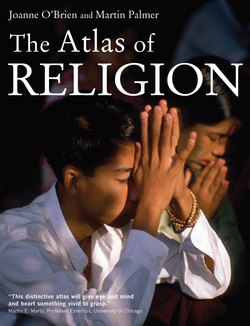Читать книгу The Atlas of Religion - Joanne O'Brien - Страница 42
На сайте Литреса книга снята с продажи.
ОглавлениеThe reasons why people profess to have no religious affiliation can be diverse, and include lack of interest, a commitment to free-thinking, agnosticism (being undecided), or simply not wishing to be labelled with any mainstream religion. Most tend not to be anti-religious; they are just not pro-religious. The number of professed atheists – those who deny the existence of God – is very small, except in a few countries, primarily the former or currently communist countries, where decades of atheist education has made an impact. Countries where humanist or ethical societies exist often have a strong tradition of opposing the role and power of religion within their culture, although they are not necessarily against religion as such. This is especially a feature of Western countries, due in part to the Enlightenment movement in the 18th century, and its struggle with religious hegemony. There is great interest in such organizations in India, arising from the drive to maintain a secular culture within which all religions can play a part, with no single religion dominating.
Copyright © Myriad Editions Limited
42
